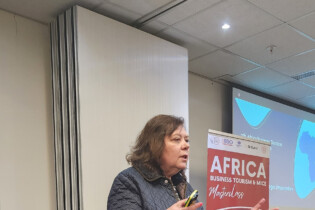After overcoming the challenges posed by the COVID-19 pandemic, Africa’s young people are now voicing their discontent with the direction in which their governments are leading them. They are united in their conviction that corruption is the single biggest threat to their future. This is not just a complaint about governance, but a reflection of how deeply corruption is impacting their lives, careers, and opportunities.
Corruption: A Major Barrier to Growth
The youth across the continent view corruption as a critical issue that is denying them their rightful opportunities. They believe it is the largest hurdle in their quest to fulfil their potential and secure a better life than that of previous generations. Many feel their governments are not doing enough to combat this widespread issue. As a result, nearly 60% of young Africans are considering emigrating within the next five years, with North America and Western Europe – especially France, the UK, Germany, and Spain – being the preferred destinations.
The 2024 edition of the African Youth Survey highlights these concerns. Now in its third iteration, the survey interviewed 5 604 young people across 16 countries, with responses representing 84% of the continent’s population. Since the survey’s inception, more than 14 000 young Africans have shared their perspectives on a range of issues, from their dreams and aspirations to the most pressing concerns facing their nations.
Youth Demand New Approaches to Leadership
Young Africans are not only calling for stricter measures against corrupt politicians- such as banning them from public office- but they are also asking for a different type of governance. Although most of the youth still support democracy (69%), many are moving away from Western democratic ideals in favour of a system that incorporates African values (60%). In some cases, nearly one in three respondents even supported non-democratic systems, including military or single-party rule, if circumstances necessitated.
Job creation remains a significant concern, with young people hoping for more employment opportunities or the chance to establish their own businesses. They are also troubled by the exploitation of their countries’ natural resources, with foreign companies mining their mineral wealth and exporting it without providing sufficient benefit to local communities.
Globally, African youth continue to view China most positively, followed closely by the United States. Russia has also gained favour, especially as many youths blame Western powers for the ongoing conflict in Ukraine. This shift in perception is indicative of Russia’s increasing influence, driven by misinformation campaigns.
As elections loom in many African nations, understanding the concerns and aspirations of Africa’s youth is crucial. Their views will undoubtedly shape the continent’s future and influence global policies.







